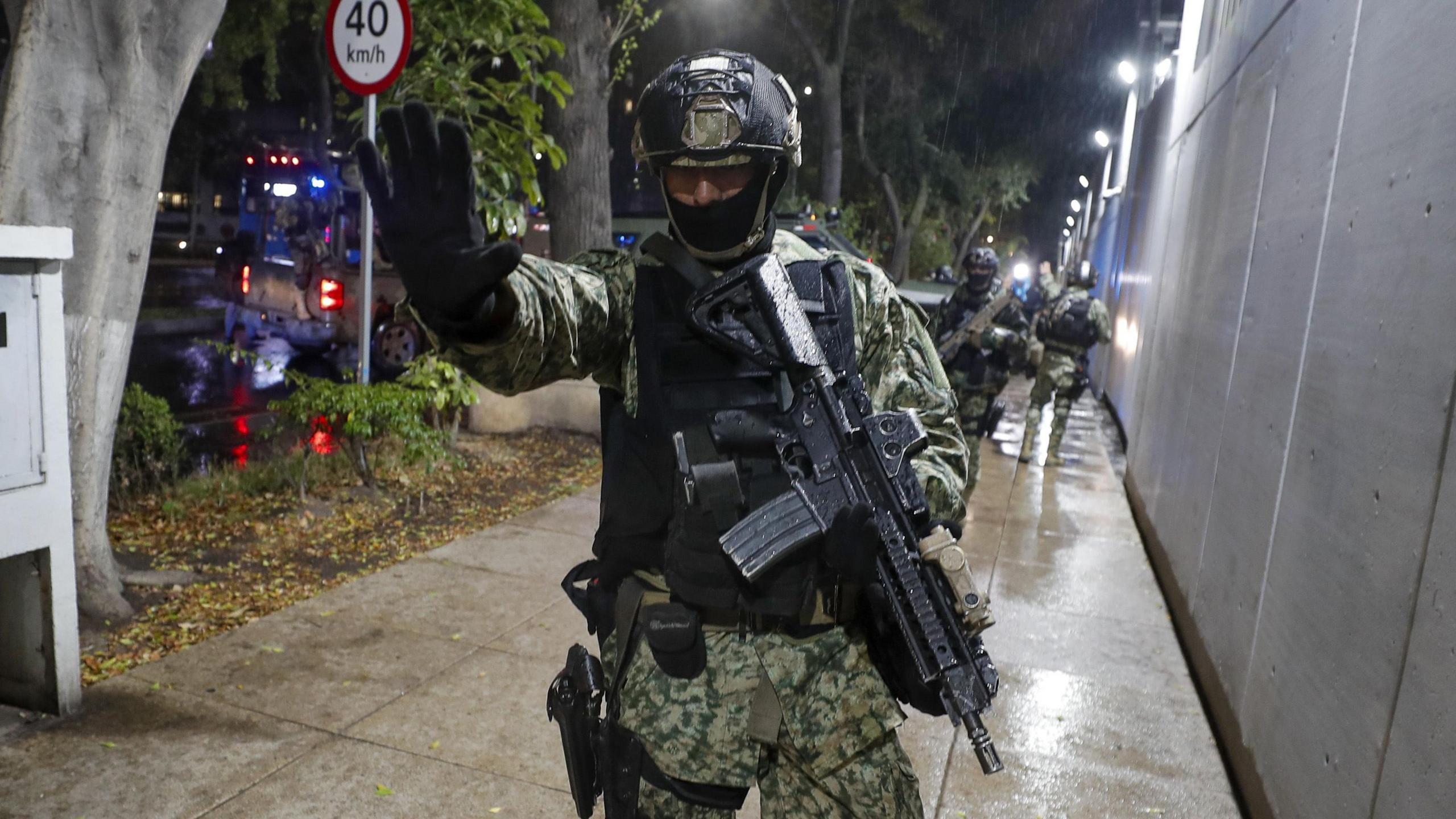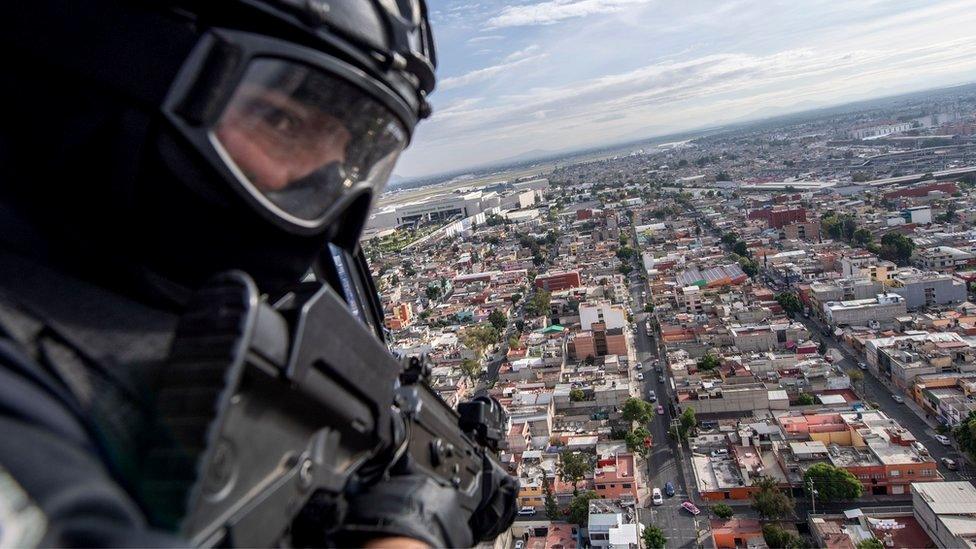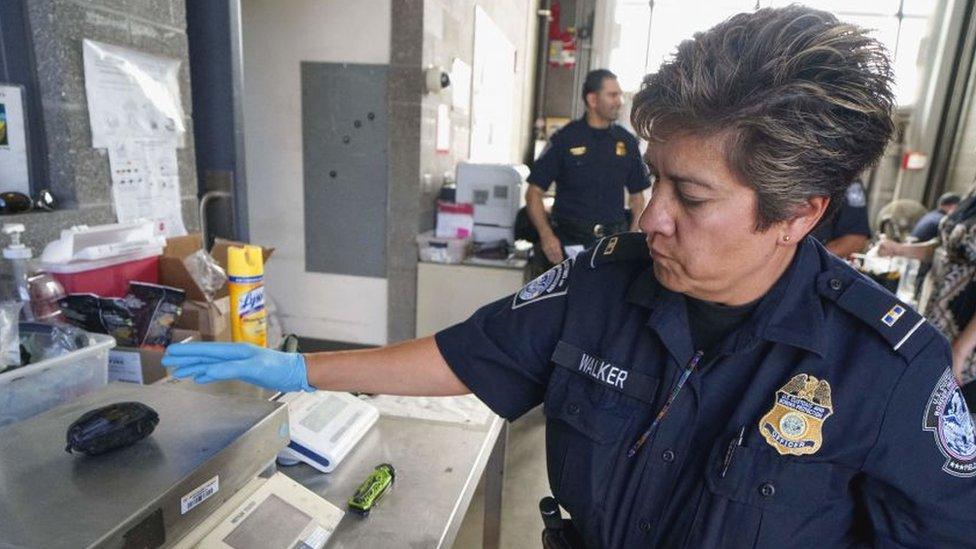Suspected Sinaloa cartel assassin extradited to US

El Nini was arrested by Mexican authorities in November 2023
- Published
The suspected top assassin for the Sinaloa cartel has been extradited to the US from Mexico.
Prosecutors allege Néstor Isidro Pérez Salas - known as El Nini, or the Slacker - was a "lead assassin" working for the sons of drug kingpin Joaquín Guzmán, better known as El Chapo.
He is wanted in the US on drug trafficking and weapons charges, which he denies.
US officials had offered a $3m (£2.4m) reward for information leading to his capture.
US Attorney General Merrick Garland alleges El Nini was part of the Sinola cartel’s production and sale of fentanyl, a deadly synthetic opioid, in the United States.
Speaking after the extradition on Saturday, Mr Garland alleged El Nini was one of the cartel's sicarios, or contract killers.
El Nini "was responsible for the murder, torture and kidnapping of rivals and witnesses who threatened the cartel's criminal drug trafficking enterprise," Mr Garland said.

The US had offered a reward of up to $3m (£2.4m) for information leading to the arrest of El Nini
US prosecutors alleged El Nini was tasked with kidnapping, torturing and killing rival drug traffickers. He was detained in the organisation’s stronghold of Culiacán, the capital of the state of Sinaloa, which gives its name to the cartel.
The arrest is part of an effort by US and Mexican authorities to stem the flow of fentanyl across the Mexico-US border. The drug contributes to the deaths of tens of thousands in the US every year.
Perez is one of the highest-profile extraditions to have taken place under Mexican President Andrés Manuel López Obrador, who has pledged to "achieve peace and end the [drug] war".
According to the US Drug Enforcement Administration, three of El Chapo's sons - Ovidio Guzmán López and his half-brothers Iván Archivaldo and Jesús Alfredo Guzmán Salazar - were leaders of a trafficking empire responsible for smuggling millions of doses of fentanyl to the US.
Mr López, whose nickname is the Mouse, was extradited to the US in September on charges of drug trafficking and money laundering, to which he pleaded not guilty.
Two of the other brothers remain at large.
Related topics
- Published24 October 2019

- Published13 September 2023

- Published18 April 2024
